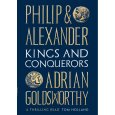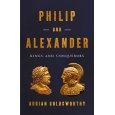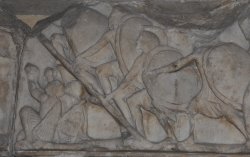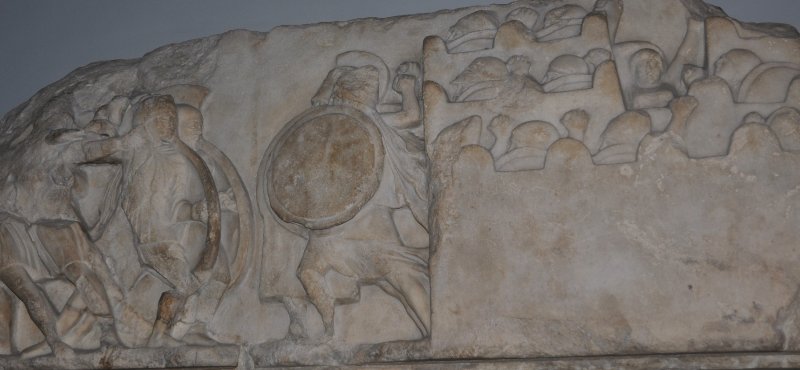

Philip and Alexander - kings and conquerors
 Full Jacket | Published by: |
 Larger image | Published by: |

Philip and Alexander - kings and conquerors is released in Britain at the start of September and the USA a month later, with a Dutch translation around the same time and others in preparation. This is my latest non fiction history, a project begun over three years ago. The Head of Zeus and Basic Books editions are largely identical. However, they have a slightly different edit and the Basic Books' edition employs American spellings.
From the jacket -
Philip and Alexander of Macedon transformed a weak kingdom in northern Greece into a globe-spanning empire. In so doing, they changed the course of history.
By the end of his short life, Alexander the Great had eclipsed the power of Persia, crossed the Hindu Kush and marched into what is now Pakistan, redrawing the map of the ancient world to create an empire that stretched from the Adriatic Sea to the Indian subcontinent. But his success was not just the product of his own genius and restless energy, it was built on decades of effort by his father. History has portrayed Philip II of Macedon as an old man, one-eyed and limping, whose convenient assassination allowed Alexander the Great to come to power. But there was far more to him than this. Through decades of hard fighting and clever diplomacy, Philip unified his country and conquered Greece. His son inherited all of this at the perfect moment and age for him to chance his luck and win greater glory. Between them, Philip and Alexander played a key role in spreading Greek language and culture over a vast area, the consequences of which were many and profound, for it led to the New Testament being written in Greek, and a Greek-speaking 'Roman' empire surviving in the eastern Mediterranean for a thousand years after the last emperor to rule from Italy.
Alexander is famous, the story of his epic conquests, heroism and savagery as great and terrible as ever they were. There are plenty of books on Alexander and I had no intention of adding yet another, but when my publisher asked whether I would write a book about both Philip and Alexander the Great, the idea immediately caught my imagination and I wanted to do it. Here was something new, a history of the lives and times of both of these men presented in as accessible a style as possible. Their careers changed the world, and you cannot properly understand Alexander without understanding Philip or without constantly keeping in mind how quickly Macedonia changed from an important backwater into the greatest power of the day.
The aim of this book is to examine both Philip and Alexander, to understand how we know what we know about them, while admitting how much we do not know or can merely guess at. This is the same style adopted in my biographies of Caesar, Antony and Cleopatra and Augustus and tries to be as honest as possible and not fill in gaps in the evidence with my own sweeping judgements of how an individual was likely to have behaved. Thus I hope this is a fair account of Philip, Alexander and those around them, where the reader is left to make up his or her own mind about controversies, puzzles and the wider implications of what both men did. The historian's job is not to judge the past, but to seek to understand it and the human beings who lived through these events.
'A thrilling read, as successful in meeting its ambitions as Philip's kingship, as sweeping as Alexander's conquests.'
'Philip and Alexander is history-writing at its best. In one volume, Adrian Goldsworthy tells the story of perhaps the most successful father-son pair of conquerors of all time. He highlights both the drama of their violent achievements and the consequences that were felt for centuries. The result is expert, fluent, and vivid.'
'Philip and Alexander is another wonderful product of Adrian Goldsworthy's historical craft-sterling scholarship, engaging prose, insightful analysis, and unbiased assessment. Goldsworthy explores brilliantly the complex relationship between father and son, the failure of the Greek city-states to stop them, and the megalomania of Alexander's near global conquests.'
Book Reviews:
